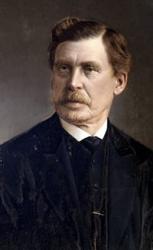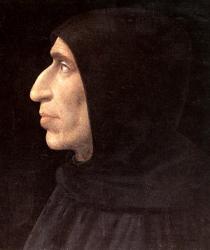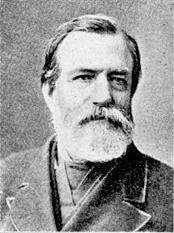
1725 - 1786 Hymnal Number: d585 Author of "Sweet the moments, rich in blessing" in The Hymnal of the Reformed Church in the United States Walter Shirley was born in 1725. He was the friend of Whitefield and Wesley. After preaching with great success in England, he received the living of Loughrea, Ireland, where he continued to exercise his ministry for many years. His last sickness was of a lingering character, and it is related of him that when no longer able to leave his house he used to preach, seated in his chair in his drawing room, to many who gladly assembled to hear. He died in 1786. He published one volume of sermons and two poems.
--Annotations of the Hymnal by The Rev. Charles L. Hutchins, M.A. (1872).
===================================
Shirley, Hon. Walter, M.A., fourth son of the Hon. Laurence Shirley (son of the 1st Earl Ferrers, and cousin of the Countess of Huntingdon), was born in 1725. He was a friend of Whitefield and the Wesleys, and often preached in their chapels. He was for sometime Rector of Loughrea, county of Galway. He died April 7, 1786. A selection of his sermons was published; also two poems in 1761—-Liberty, an Ode, and The Judgment. In 1774 he assisted the Countess of Huntingdon in revising the collection of hymns used in her chapels, and therein a few of his productions are found. In the Life of Selina, Countess of Huntingdon, 1839, vol. ii., p. 291, the following note is given on Shirley's hymn-writing:—
"Mr. Shirley was the author of several well-known hymns in Lady Huntingdon's collection, particularly:—
‘From heaven the loud angelic song began.'
‘Hark! in the wilderness a try.'
‘Flow fast my tears, the cause is great.'
‘Sweet as the shepherd's tuneful reed.'
‘Source of light and power divine.'
“There are also some in other collections; and a few little poems scattered in various periodical publications. The lines on the departure of the Missionaries from Lady Huntingdon's College for America, in 1772, under the direction of Mr. Piercy, have been much admired; they were re-published in the Evangelical Magazine, in 1796, on the departure of the ship Duff, for the South Sea inlands.....He likewise assisted Lady Huntingdon in the Selection of hymns now in use in the congregations in her Connexion."
The Missionary hymn here referred to is:— "Go, destined vessel, heavenly-freighted, go!" His hymns now in common use include:—
1. Flow fast, my tears, the cause is great. Good Friday. Published in the Countess of Huntingdon's Collection, circa 1773, p. 294, in 3 stanzas of 8 lines. It is in several modern hymn-books; and especially in America, including Hatfield's Church Hymn Book, 1872.
2. From heaven the loud angelic song began. Ascension. Also in the C. of Huntingdon's Collection, circa 1773, p. 312, in 7 stanzas of 4 lines. The hymn, "Worthy the Lamb of boundless sway," in Hatfield's Church Hymn Book, 1872, and others, is composed of st. ii. and vii.
3. Hark, in the wilderness a cry. St. John Baptist. Also in the C. of Huntingdon's Collection, circa 1773, p. 245, in 7 st. of 4 1.
4. Source of light and power divine. Before Sermon. Also in the C. of Huntingdon's Collection, circa 1773, p. 231, in 4 st. of 6 1. In Snepp's Songs of Grace & Glory, 1872, No. 812, st. i. and iv. are given in an altered form; and the first two lines of the hymn are added as a refrain.
5. Sweet as the shepherd's tuneful reed. Peace. Also in the above Collection, circa 1773, p. 126, in 4 st. of 6 1. The hymn, “Peace, troubled soul, whose plaintive moan," in Laudes Domini, N. Y., 1884, and others, is composed of stanza ii. and iii.
For Shirley's popular recast, "Sweet the moments, rich in blessing," see “While my Jesus I'm possessing."
-- John Julian, Dictionary of Hymnology (1907)
Walter Shirley




